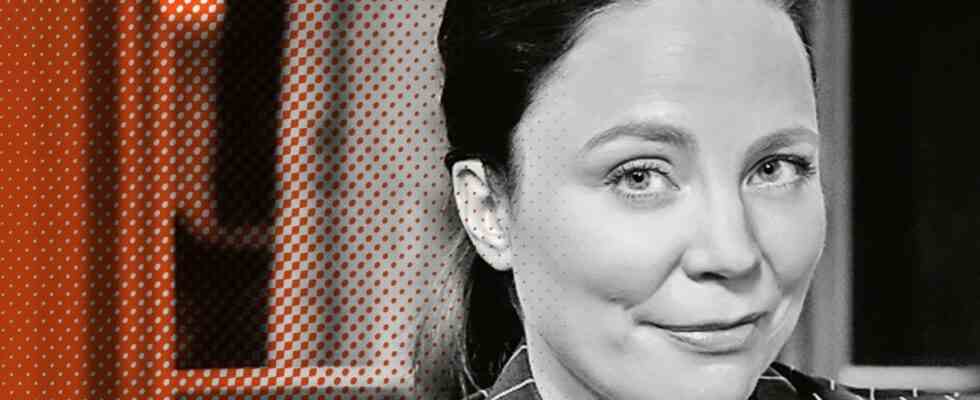Thea Dorn, born in Offenbach in 1970, is not only a literary connoisseur, but also a moderator and author of crime novels, plays and screenplays. For the past two years she has also directed the “Literary Quartet” on ZDF.
SZ: What are you reading right now?
Thea Dorn: I’ll read the 900 pages for the next issue of the “literary quartet”. “Sleep in the Clocks” by Uwe Tellkamp. Unfortunately, I can’t/may/don’t want to chat out of the reading box just yet. The Suhrkamp publishing house would probably remove me from the list of trustworthy reviewers for all time if I trumpeted out an initial assessment of this novel nine days before the publication of this novel. Besides, I don’t want to spoil the surprise for my three fellow campaigners — Eva Menasse, Jakob Augstein and Moritz von Uslar — nor for our viewers. So: Patience until Ascension Day!
Which book influenced you the most?
That’s hard to answer. In different phases of my life, very different books have had a similarly intense impact on me. (Childhood: “Pippi Longstocking”; Puberty: Camus’ “The Stranger”; after that it becomes confusing.) The book that I have pulled off the shelf most often in my entire life is probably the “Iliad”. I’m afraid that my mother, without intending to do so, set the course for me to grow up the day she handed me Walter Jens’ retelling – large format, orange, washable, honestly illustrated was lost to any monotheism. The Homeric world view, according to which it is not the a god that one There is no principle from which everything could be explained, but that we, as people who have been torn apart in many ways, live under a sky of gods that has been torn apart in many ways, simply stuck too deeply in my mind.
Which book explains the whole world best for you?
Exciting question whether someone who thinks monotheism is a mistake is allowed to believe that a book can explain the whole world? Should I allow myself to be carried away into a monobiblical confession, it would probably have to apply to Goethe’s “Faust”.
Why do books have to be made out of paper?
Have to Of course they don’t do that, no polemics against e-reading, but sensuality and beauty begin where everything has to end.
Does German literature need its pope?
As a trained ex-Protestant I don’t even see why Christianity should need a pope.
Do you sometimes have a guilty conscience when you’ve panned a book?
The urge to rip books has waned a lot over the past few years. In general, I find it more interesting to discuss books that are worth discussing. The worst slatings — and I’m afraid they represent the majority — are those that are not the result of a specific reading displeasure, but of an aversion that the shredder had previously harbored against the book or the author. Should I have made one or the other slating of this kind in the past, this is certainly not something I would be proud of today.
Read more episodes of the interview column here.

